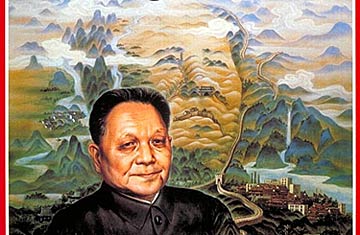
Nearly 45 years ago, just out of Harvard and still trying to master the intricacies of Mandarin, Theodore H. White made his way to China and found a land in turmoil. Settling in Chiang Kai-shek's wartime capital of Chongqing (Chungking), then a drowsy Yangtze River port with a population of 250,000, he soon began reporting from there for TIME. One book (Thunder Out of China, 1946), two wars (China against Japan, China against itself) and six eventful years later, he departed, in sharp disagreement with TIME'S Editor-in-Chief, Henry R. Luce, about China's future. In the decades since, he has chronicled some of the major events of our time, from Europe's postwar recovery (Fire in the Ashes, 1953) to America's shifting politics (The Making of the President series, 1960 to 1980). This spring, Pulitzer Prizewinner White returned to China for his first extended visit since the mid-1940s (in 1972 he covered Richard Nixon's brief trip). For nearly two months he crisscrossed China, revisiting Chongqing, now a bursting-at-the-seams metropolitan area of 14 million, exploring the crowded alleys and broad boulevards of Peking and interviewing scores of Chinese, from peasants to Politburo members. Once again he found a land in turmoil; this time, however, it was the turmoil not of war but of change. Here is his report:
That first night back in China, my old friend Wang Bingnan drove me out to visit Fragrant Hill. From the hill you can almost see Peking, 25 miles away. In the evening, when the sun purples the range, the passes in the mountains show the way ancient conquerors cut their entry into the capital. That was the way Mao Tse-tung, the last conqueror, came to view Peking in 1949, when he held it in his hand — and Mao still haunts Fragrant Hill, as he haunts Peking, haunts all China, haunts its politics, dreams, nightmares.
The story, even now in 1983, started with him. Wang Bingnan was telling me of his first night on the hill back then in 1949. He had arrived with Mao and the Zhongyang, the Central Committee that rules the Communist Party of China. They came as a nomad encampment, several thousand men and women who promised to give new government to the China they had conquered. For two years, they had been wandering the arid northlands, pursued by Chiang Kai-shek's divisions. But Mao had raced his own best troops northeast to Manchuria to encircle and wipe out Chiang's forces. Next he deployed his other armies, first to wipe out the last of Chiang's elite divisions south of the Yellow River, then to seize Peking.
So now, in March 1949, it was over — or just beginning. That last day's trek, Mao had moved the Zhongyang to Fragrant Hill so its fires twinkled above the capital. Mao's troops were still cleaning out the fallen city, and it was not yet safe for him to enter, even though Nationalist dignitaries were about to arrive to sue for peace. Each morning Chou En-lai and Wang Bingnan would drive down to negotiate; each evening they would drive back to report. Mao was inflexible: no terms for surrender. China was his to remake.
Wang Bingnan remembered how Mao, coming in from the march that first evening, had been offered a bed. He was to sleep on a spring mattress, after 15 years of sleeping on a hard board with only a thin peasant's pad between the board and his body. Wang remembered meeting Jiang
